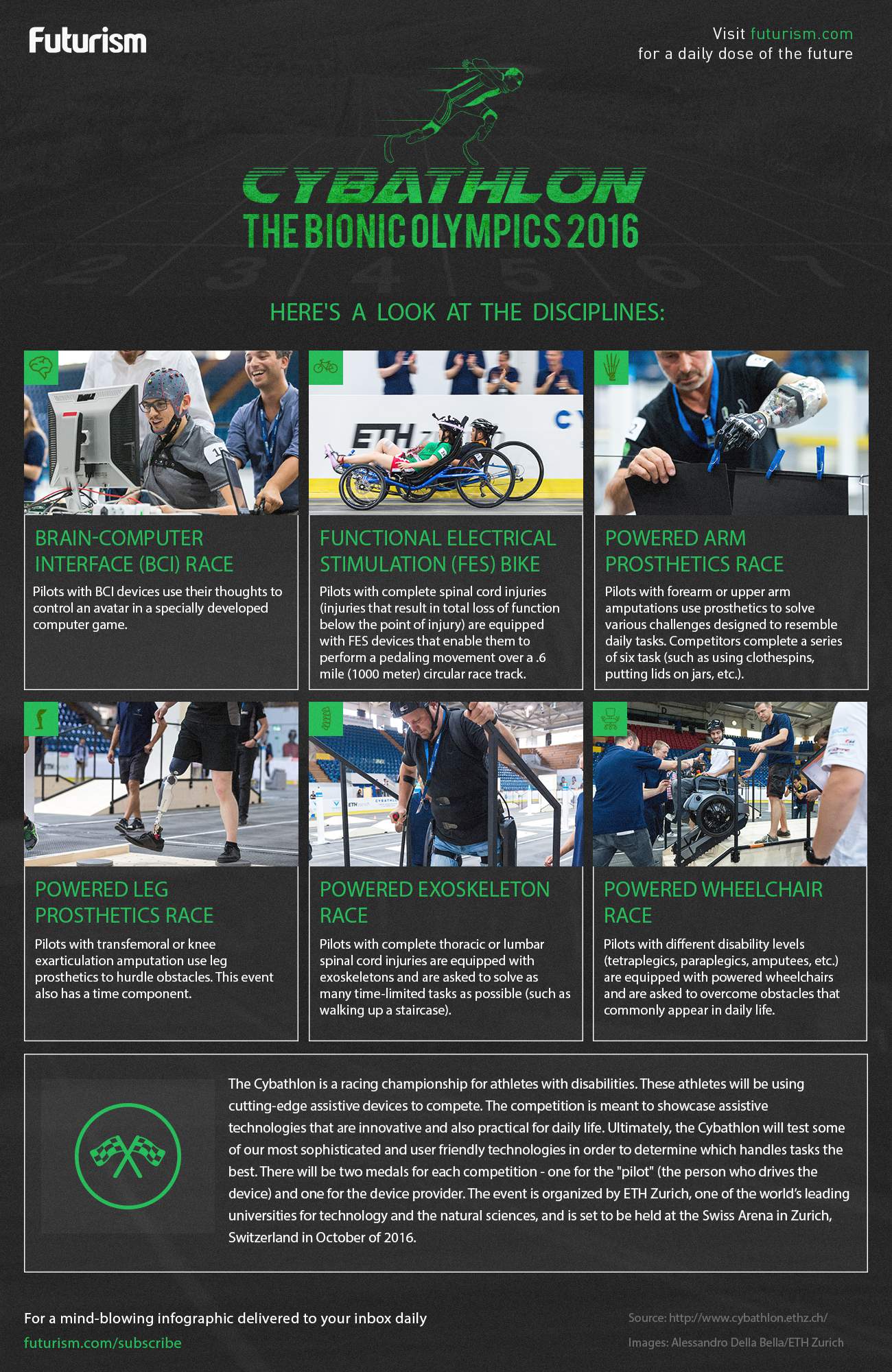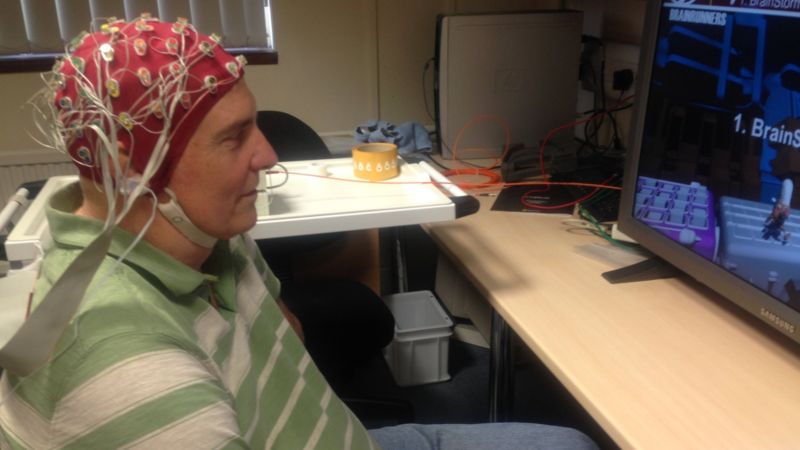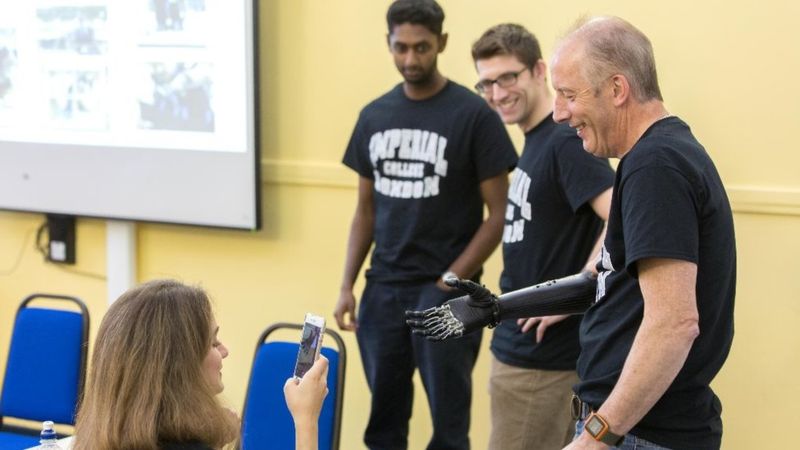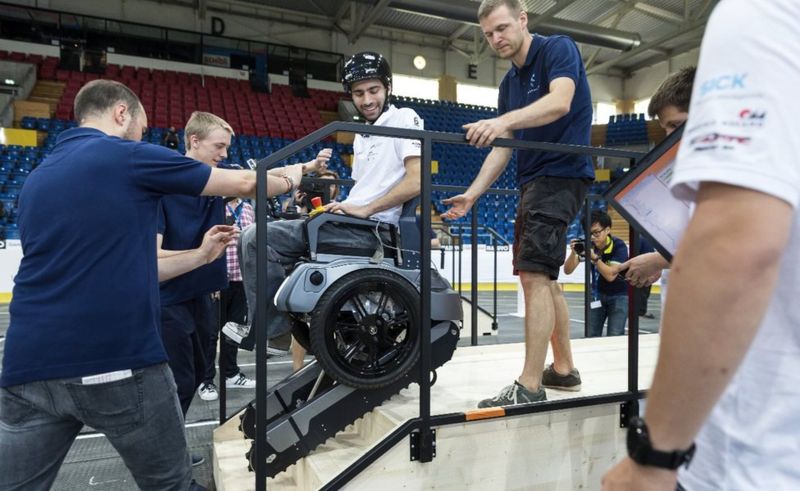
Titanium Media Note: You must be familiar with the Olympic Games (including the Paralympic Games) and must have even heard of Marathon. However, you may not have heard of this special sports event: The first "Bionics Olympic Games" in the world. †The event, which was held in Kloten, Switzerland, in October this year, was called Cybathlon. There were about 70 handicapped players who participated in six games that imitated daily activities with the aid of bionics technology.
Yes, to imitate daily activities - There are really many people in the world who need to "race" on the daily tasks of climbing stairs and cutting bread. The technology has given them wings.
The key word of this game is the real "high-tech". The purpose of the event is to show the public how the "bionics technology" is improving the lives of disabled people:
Bring a cup of tea, cut a slice of bread, climb a flight of stairs, and open a jar of jam on a piece of bread without the help of any power... These actions seem ordinary to healthy people. They can do these things effortlessly and are considered as they should be.
However, for a paraplegic patient who can no longer walk, it is too difficult to do these things. If you want to walk like a normal person, you must rely on peripheral devices. In the past, wheelchairs, walking sticks, etc. have already been the "primary stage." A set of advanced exoskeleton equipment is indispensable. One of Cybathlon's entries was the need to use exoskeleton equipment to stand on an uneven surface and to maintain balance - sounding a tedious and almost impossible task, but exoskeleton technology made this one Things are possible.
Remember when Titanium Media's 2015 T-EDGE summer summit, titanium media introduced you to Rex Bionics, an exoskeletal technology company from Silicon Valley? Today's new technologies are gradually improving the living conditions of the disabled groups. This unique "Bionic Marathon" really makes people think:
The real "kind of life"
Some of the Cybathlon events: power arm races, pedal races, human brain computer races, etc.
According to the BBC, 50 teams from around the world participated in this special competition. The Imperial College London team is one of them.
A member of the participating team named Kevin Evison said: “Since the success of the London Paralympic Games, people with disabilities have received more public attention, but people are unaware that those people with disabilities are physically weak. People are facing daily struggles."
Eisen needs to use advanced artificial limbs to compete in a project. For this event, he commented: "With the idea of ​​innovation, Cybathlon brings together the best prosthetic techniques from all over the world. This makes us become Being more independent also makes it a competition between companies and laboratories."
David Rose, who died in a diving accident 29 years ago, represented the Essex Brainstorm team. He tried to use a brainwave to control a computer. "I have always been a great entrant - I like to participate in sports since childhood and always try to win."
According to media reports, in order to prepare for this game on the brain interface, Rose has been trained for the past two years. He will wear a cap covering the electrodes, which will detect his brain activity and send the readings to the computer.

David Rose controls the computer. Image source: BBC
"This kind of exhaustion is startling," he added. "To move my head, I must focus on an idea without thinking about anything else. When you are in the daytime, you often think about what I'm drinking tonight." 'Or, 'I must do it well', or, 'Let more money in the parking lot's watch, your brain works continuously.'
How to make the brain "reconnect"Cybathlon is organized by the Federal Institute of Technology, University of Zurich, Switzerland. One of the goals of this organization is to encourage engineers to create more ancillary products for the disabled.
"The problem is that most of the users involved in the study are physically sound," explained Ana Matran-Fernandez, a team leader at the University of Essex.
"But, our brains are reconnected. If some people can't move their legs for many years like David, some brains can do something else."
"It's hard to get people with this level of disability into the lab for long-term training courses. Cybathlon offers an opportunity to do this."
"Because of such a game, we have established a brain-computer interface that can recognize different commands, so that we can control the wheelchair forward or move left and right."
Those teams that participated in the prosthetics competition hope that this competition can inspire more and more low-cost and more advanced artificial limbs.

Eisen represented the team of Imperial College in the competition, source: BBC
Although Mr. Eisen’s electronic hands are highly mobile, they almost cost the UK’s national medical service system a price of nearly £7,000. It is no longer available to regular patients.
"The game includes completing as many tasks as possible in a limited time." He explained, "Some tasks such as cutting a slice of bread, holding a tray and putting on a light bulb. I can't see any problems here. I'm in This is not a failure but a win."
Imperial College itself is also developing some cheaper alternatives. "We are studying sensor technology, like putting a microphone on the skin to listen to the movement of muscle fibers," said Dr. Ian Radcliffe, who is in charge of the university's sports innovation challenge.
"It's more powerful than the current EMG system used by Kevin," Dr. Radcliffe quoted a reliance on the detection of electronic signals produced naturally by muscles.
“It is also not susceptible to errors and is easier to use. The main purpose is to make it a wider application at a lower price.†
Source: BBC
Imperial Tech team is also perfecting a wheelchair to complete the task of climbing stairs.
Cybathlon is the idea of ​​Professor Robert Riener of the Federal Institute of Technology, University of Zurich, Switzerland. He said that there is such an idea because of a chat with an acquaintance with a failed arm.
"He said he had to use his artificial limbs to pull out his wallet when he lined up to buy a ticket at the cinema," Riener recalls. "It is a challenge to do it quickly because the prosthesis makes a loud noise. He is very awkward".
"I realized that the current technology is not perfect. I think the game will motivate the research room to talk to patients and propose better solutions."
Cybathlon will set up the stadium in the United Kingdom next year. The organizers of this event also stated that if the competition can be successfully held in October this year, it will also plan that the next game may follow up in Stockmandeville Hospital near Alsbury - this city was once The Olympic Games played an important role in the birth. (This article first titanium media, compiler / reporter Li Cheng Cheng)